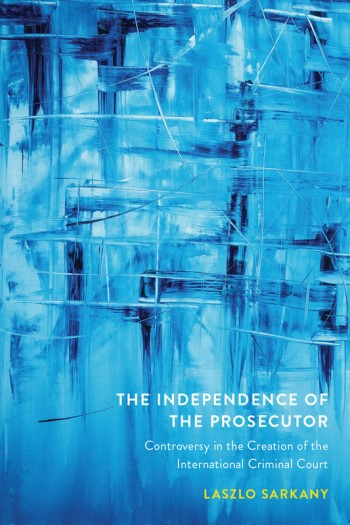
The establishment of the International Criminal Court was a singular achievement, even a revolutionary one. The Court has no territorial limits on the conflicts it chooses to address or how long it takes to do so. And uniquely within the realm of international criminal justice, the ICC Prosecutor can initiate investigations independently of any state’s wishes.
Why would sovereign states agree to such sweeping powers? To answer that question, The Independence of the Prosecutor dives deeply into the origins of the international body. Laszlo Sarkany draws on interviews with key participants to analyze the negotiations that produced the novel institutional design of the Court. Case studies of Canada and the United Kingdom, which supported prosecutorial independence, and the United States and Japan, which opposed it, demonstrate that state positions depended on the values and principles of those who wielded the most power in national capitals at the time. Appendices to the book build an empirical record of the arguments made by state delegations.
The ICC offers a bulwark against the high politicization of our era. This astute investigation demonstrates that now, over twenty years after its establishment, the ICC’s innovative arrangement of having an independent prosecutor continues to move law and international criminal jurisprudence forward and directly combats impunity for mass atrocities.
Scholars and students of law, policy-makers, and journalists will value the clear-eyed scholarship that animates The Independence of the Prosecutor.